Academy Award-winning actor, Brigadier General and poet--James Stewart was all of these things. As the documentary James Stewart: A Wonderful Life
Stewart was Frank Capra, John Ford and Alfred Hitchcock's ideal leading man--someone we could all identify with. Richard Dreyfuss said that Stewart had "an economy of American grace about him. [...] My politics were formed by my parents, Frank Capra, and him." Stewart's The Philadelphia Story (1940) co-star Katharine Hepburn praised his "integrity that is most unusual."
Written by John L. Miller and directed by David Heeley, the film covers Stewart's entire career, beginning at Princeton University in 1928 (then an all-male school), where he studied architecture and got involved with Josh Logan's theater group The Triangle Club, performing in several plays. On graduation day, Logan told Stewart that he should come to West Falmouth, Massachusetts for the summer to join The University Players stock company. The actors included Mildred Natwick, Margaret Sullavan, Henry Fonda and Logan. Stewart later said that experience was "responsible for a 60-year acting career."
He was soon on Broadway, where the critics took notice. So did MGM talent scout Bill Grady, and Stewart was signed to a seven year contract, where he got his start in films like Rose Marie (1936) and After the Thin Man (1936). The studio worked him six days a week, either in small parts in A pictures and large roles in B pictures, or doing screen tests, voice lessons and exercise classes. Sometimes he did three films at once. Despite the hard work, Stewart considered the old studio system the best way to make movies, and a lucky break for him. Another lucky break was playing opposite one the studio's biggest female stars, Jean Harlow, in Wife vs. Secretary (1936). "At the end of the rehearsal, Jean kissed me. I'd never been kissed like that before. She really let me have it. This was on the rehearsal. Clarence Brown was directing. [...]. He let me do it three times. Four times, counting the rehearsal. And she was a good kisser!"
James Stewart was a "natural" actor, even though he never studied acting. It was that sincerity that earned him five Academy Award nominations and one win - for The Philadelphia Story , which some people saw as a consolation for not winning for Mr. Smith Goes to Washington (1939). Stewart's father told him to send the statue home and he'd put it in the window of his hardware store, where it stayed for twenty years.
Nine months before the United States entered World War II, James Stewart was drafted into the Army, where he asked to be treated as a regular soldier. As an experienced pilot, he commanded a bomber squadron in Europe, serving with another actor - Walter Matthau. Matthau noticed that at first the other soldiers treated Stewart as a movie star, but eventually that awe wore off and he was just another officer. Stewart ended his service as a decorated Brigadier General, although he rarely spoke of his experience. After his discharge, he elected to stay with the reserves in the Strategic Air Command for a total of twenty-seven years, retiring in 1968 with honors.
Back in Hollywood, Stewart found that his contract had lapsed with MGM in his absence. Unsure of what his future would be, he was relieved when Frank Capra called with a story idea that turned out to be It's a Wonderful Life (1946). As he told Stewart the story, Capra suddenly topped and admitted to that he wasn't sure it was such a good idea. Stewart replied, "Frank, if you want me to be in a picture about a guy who wants to kill himself and an angel comes down named Clarence...when do we start?" It was perhaps his greatest performance and the one for which he is best remembered.
The 1950s were a good decade for Stewart, in which he played roles as diverse as real-life people, like bandleader Glenn Miller and aviator Charles Lindbergh, as well as Alfred Hitchcock's flawed characters in Rear Window (1954) and Vertigo (1958). He also began to appear in a series of Westerns, appearing in twenty in all. Now in his 40s, his hair greying, Stewart became a tougher actor. "I'd matured. 4 ½ years away and I was that much older. I had three flop pictures which convinced me that I'd better do something." That 'something' was Winchester '73 (1950) - the first of five films he'd make with director Anthony Mann. "The Western was a thing that saved my neck after the war. [...] That's part of my good luck."
Stewart's career continued through the 1960s and 70s, with more westerns like The Man Who Shot Liberty Valance (1960) and Cheyenne Social Club (1970) with his best friend and former roommate, Henry Fonda. He had his own television show and made occasional guest shots and cameo roles in film and television until his last appearance, doing a voice in the animated film, An American Tail: Fievel Goes West (1991).
James Stewart always credited good luck for his professional success, but he also had good luck in his personal life. He was married to Gloria Hatrick from 1949 until her death in 1994, which was said to have devastated him. He only survived her by three years, dying on July 2, 1997. When Johnny Carson asked Stewart how he'd like to be remembered, he said as "a guy who believed in hard work and decent values and love of country, love of family, love of community, love of God."
By Lorraine LoBianco
James Stewart: A Wonderful Life

Brief Synopsis
A retrospective on the life and career of actor James Stewart, with clips from many of his films and interviews with people who have worked with him.
Cast & Crew
Read More
David Heeley
Director
Richard Dreyfuss
Johnny Carson
Nancy Reagan
Lee Remick
Carol Burnett
Film Details
Also Known As
Great Performances (03/13/87), James Stewart: A Wonderful Life
Genre
Documentary
Release Date
1987
Technical Specs
Duration
1h 30m
Synopsis
A retrospective tribute to actor James Stewart. The program includes highlights from Stewart's films and interviews with his friends and associates.
Director
David Heeley
Director
Cast

Richard Dreyfuss

Johnny Carson
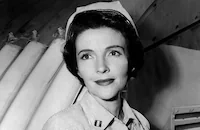
Nancy Reagan

Lee Remick

Carol Burnett
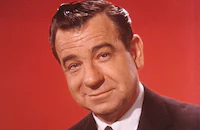
Walter Matthau

Gene Kelly
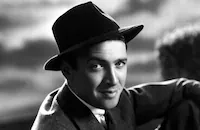
James Stewart

Katharine Hepburn
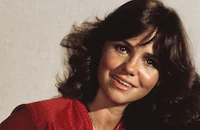
Sally Field
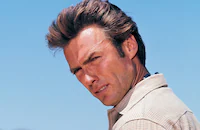
Clint Eastwood
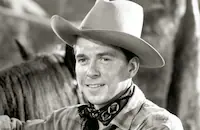
Ronald Reagan

Peter Bogdanovich
Crew
John Adams
Music Supervisor
Scott Doniger
Editor
Thomas Fasano
Production Assistant
Rosemary Fishel
Music Supervisor
Barbara Flyntz-bradley
Audio Mixer
Emily Grossman
Researcher
David Heeley
Producer
Christopher Kogler
Art Director
Joan Kramer
Producer
Greg Larsen
Camera
Joe Longo
Camera
Linda Mayhew
Audio
John L. Miller
Writer
Cynthia Mitchell
Associate Producer
John Nolan
Lighting
Gina Pampinella
Production Assistant
George Paris
Executive Producer
Nikola Pavicenic
Audio
Betsy Pritchett
Production Manager
John Sharaf
Lighting
John Sharaf
Camera
David Siegel
Production Associate
John J. Strauss
Consultant
Dale Vennes
Camera
Jac Venza
Executive Producer
John Vincent
Audio
Brian Whitehill
Titles
Film Details
Also Known As
Great Performances (03/13/87), James Stewart: A Wonderful Life
Genre
Documentary
Release Date
1987
Technical Specs
Duration
1h 30m
Articles
James Stewart: A Wonderful Life

James Stewart: A Wonderful Life
Academy Award-winning actor, Brigadier General and poet--James Stewart was all of these things. As the documentary James Stewart: A Wonderful Life














